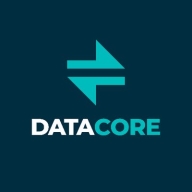


DataCore SANsymphony and HPE StoreVirtual compete in the enterprise storage solutions category. Based on feature versatility and integration, DataCore SANsymphony appears to hold an advantage with its wider compatibility and additional functionalities.
Features: DataCore SANsymphony offers distinguishing features like mirroring, auto-tiering, and continuous data protection, which facilitate enhanced application performance and storage efficiency. It is known for its flexibility in combining various storage types and has robust VMware integration. HPE StoreVirtual focuses on high availability and redundancy, providing robust mirroring capabilities and multi-site disaster recovery options. The predictable pricing structure adds to its appeal for budget-conscious deployments.
Room for Improvement: DataCore SANsymphony receives feedback for its complex pricing model and occasionally limited technical support, alongside suggestions for improved connectivity during maintenance. HPE StoreVirtual could enhance its outdated user interface, simplify management processes, and refine its iSCSI handling. Users also express concern over HPE StoreVirtual’s transition toward end-of-life, indicating a need for more scalable solutions.
Ease of Deployment and Customer Service: DataCore SANsymphony's deployment is generally straightforward, especially with experienced partners, and users speak highly of its strong and responsive technical support. HPE StoreVirtual’s setup can sometimes be complex, requiring careful planning and involvement from strategic partners to ensure successful implementation. Though HPE's technical support is usually adequate, service quality may vary.
Pricing and ROI: DataCore SANsymphony employs a per-terabyte licensing model, with potential additional feature fees, making its pricing less predictable; however, effective scalability can often balance the upfront costs. Conversely, HPE StoreVirtual presents a more predictable, one-time licensing cost that benefits scalable deployments, yet its end-of-life status may affect long-term ROI, inviting caution regarding future investments.
I would rate them an eight out of ten.
They always help me quickly and with great knowledge, which is essential for central storage.
There are no limits to scalability, which is essential for central storage.
In case there is any issue with any blade, the data is moved to another.
Its configuration should be easier.
there should be improvements in how to get and filter logs
The cost changed from a perpetual license to a subscription model.
We can plug in many blades, and we can have data up to one terabyte.
Customers can extend storage with flexibility, as one is not obligated to purchase hard disks or controllers from the same storage vendor.



FlashBlade is the industry’s most advanced scale-out storage for unstructured data, powered by a modern, massively parallel architecture to consolidate complex data silos (like backup appliances and data lakes) and accelerate tomorrow’s discoveries and insights.
Experience peace of mind with DataCore SANsymphony, the ultimate software-defined storage solution alleviating storage management challenges. Say goodbye to the complexities of managing different storage tiers and disruptions with SANsymphony's block-level storage virtualization technology, empowering you to automate capacity provisioning and data placement across diverse storage environments including SAN, DAS, HCI, and JBOD. Break down silos, control data placement, meet business continuity objectives, boost performance, and seamlessly expand or refresh hardware with SANsymphony. Benefit from features like asynchronous replication for disaster recovery, minimizing data loss, accelerating application responsiveness, and integrating new technology non-disruptively. Trusted by industry leaders like NASA, Thorntons, Inc., and TUI Cruises, DataCore SANsymphony guarantees unparalleled flexibility, scalability, and reliability, ensuring uninterrupted data access and application availability while reducing storage costs and inefficiencies.
HPE StoreVirtual storage ensures that organisations can optimise the benefits of server virtualisation with cost-effective high availability and disaster recovery. The iSCSI-based, scale-out storage platform is easy to manage and change – meeting ongoing business demands without creating IT bottlenecks or application downtime. Overcoming the cost and management limitations of traditional storage area networks (SANs), HPE StoreVirtual nodes use storage clustering to form a single pool of resources that enable organisations to buy only what they need today, scaling non-disruptively to meet requirements in the future.
We monitor all Software Defined Storage (SDS) reviews to prevent fraudulent reviews and keep review quality high. We do not post reviews by company employees or direct competitors. We validate each review for authenticity via cross-reference with LinkedIn, and personal follow-up with the reviewer when necessary.